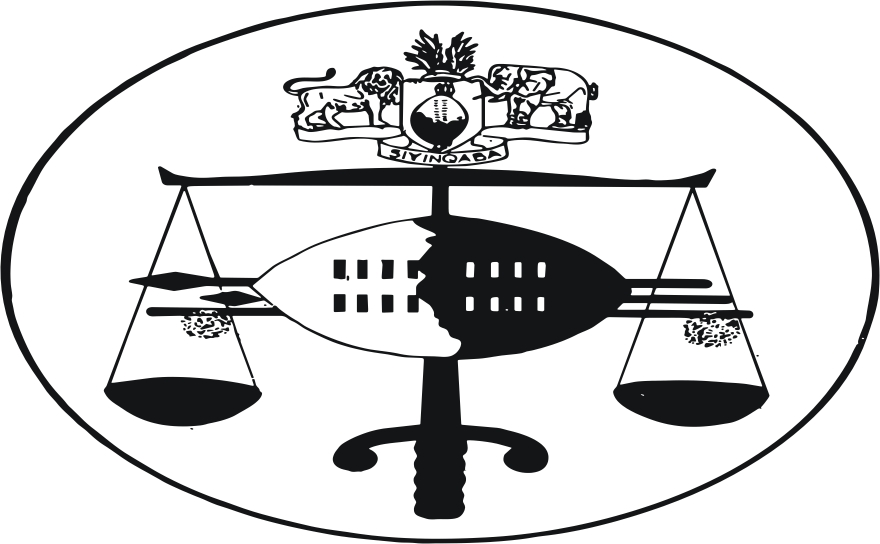
IN THE HIGH COURT OF SWAZILAND
HELD AT MBABANE Civil Case No. 201/2008
ALBERT MPHENGULI MAMBA Applicant
And
MICHAEL MANYONI MAMBA Respondent
Coram S.B. MAPHALALA - J
For the Applicant MR. B. SIMELANE
For the Respondent MR. T. FAKUDZE
_____________________________________________________________________
JUDGMENT
27th February 2009
___________________________________________________________
[1] Serving before court is an application in the long form for an order inter alia, to have Respondent ejected and evicted from a piece of land under Swazi nation land situate at Ngculwini area in the Manzini Region.
[2] The application is founded on the affidavit of the Applicant and a supporting affidavit of one William Matibuko who was responsible for the allocation of land to the people who have khontaed at the Ngculwini umphakatsi.
[3] The Respondent has filed a Notice of intention to oppose the application. An Answering Affidavit is also filed where four points in limine are raised. These points are firstly, that of non-joinder in that the Applicant has failed to join the Umphakatsi, or Ngculwini Royal Kraal in as much as the land in issue was allocated to the Respondent by the said Umphakatsi.
[4] The second point in limine is that there are serious and substantial disputes of fact to the ownership of the land in question which disputes of fact cannot be resolved without hearing oral evidence and joining the Umphakatsi and the Applicant has always been aware of this dispute of fact of:
whether the land belongs to the Applicant and/or Respondent in the first place,
how the “landowner” got to acquire same.
[5] The third point in limine is that of jurisdiction that this court has no jurisdiction in that in as much as the land in issue is under Swazi land which is administered in terms of Swazi nation law and custom on behalf of the King.
[6] The fourth and final point raised is that this matter is lis pendens in that the Applicant has applied for a peace binding enquiry at the Manzini Magistrate Court, which application was made before the present application before this court and which enquiry is part heard before that court.
[7] The Applicant further filed an application to strike out Respondents Answering Affidavit in that the said Affidavit purports to have been made by the Applicant and yet it is filed by the Respondent. The introductory name on the Answering Affidavit is that of the Applicant, but the signature and contents therein are that of the Respondent. Applicant and Respondents are biological brothers and needless to state share the same surname hence the introductory name in the Answering Affidavit is a bona fide typing error.
[8] Having considered the arguments on the above point in para [5] supra I condone both instances of error.
[9] Reverting to the determination on the points in limine I shall consider them ad seriatim as follows:
Non-joinder
[10] According to the Respondent the land in issue is under Swazi Nation Land which land is held by the King in trust of the Swazi nation.
[11] On the basis of the above constitutional framework the Respondent contends that Swazi Nation Land is governed by Swazi law and custom through traditional structures as appears under Chapter XIV of the Constitution, therefore all matters relating to such land should be heard by the Umphakatsi. Alternatively it should be joined in matters relating to such land. In the premises this court has no jurisdiction and/or not competent to be an arbiter in this dispute.
[12] Furthermore, on this point that the application does not state in his papers what the Umphakatsi decision was in relation to this dispute, hence the Applicant has not exhausted local conflict resolutions available under Swazi law and custom as the court can only have jurisdiction when such matters are brought before it in an appeal or review.
[13] On the other hand it is contended for the Applicant that he High Court has unlimited original jurisdiction in civil and criminal matter, common law jurisdiction, inherent and residential powers that enable any matter unless specifically excluded by statute.
[14] It appears to me that the Applicant consents to the point made by the Respondents in that at para 3 (c) of his Replying Affidavit the Applicant states the following:
“Land held under Swazi law and custom is specifically excluded and therefore the Honourable Court does not have jurisdiction over it”
[15] The Applicant has shot himself on the foot by stating the above which in fact is a true statement of the law regarding land held under Swazi law and custom.
[16] In view of my finding on the question of jurisdiction I have come to the considered view that I cannot address the other points in limine as the issue of jurisdiction is of paramount importance. The court has to have jurisdiction to address the other points raised.
[17] In the result, the point of law in limine on jurisdiction succeeds with costs.
S.B. MAPHALALA
PRINCIPAL JUDGE